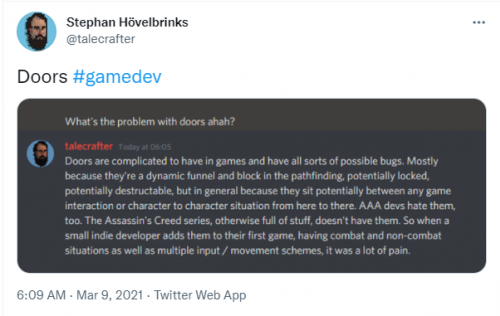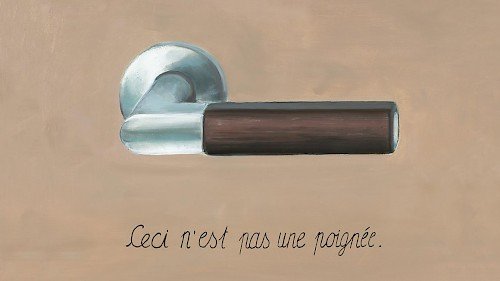
Introducing 'DOORS': A New Experimental Game to Tackle the Philosophical Side of the 'Door Problem' in Game Design


In case you missed it on our social media, Prof. Stefano Gualeni and his team (including other IDG members like Dr. Costantino Oliva, Jesper Schellekens, and others) announced a new, FREE and SHORT playful attempt at making a new set of philosophical arguments. You might remember his previous game about the analytical definition of soups, perhaps: Something Something Soup Something.
Well, our new game is titled 'Doors' and is about doors, takes about 20 mins and I promise you will not resent having spent them on it: https://doors.gua-le-ni.com
'Doors' was co-designed with Dr. Nele Van de Mosselaer (University of Antwerp, Belgium), and made possible with funds made available by Maltco Lotteries and the FWO (FWO Research Foundation - Flanders).
Forget about why game developers hate videogame doors

Philosophers hate videogame doors even more! Liz England introduced the game developers' hate of doors in her seminal blogpost the 'Door Problem' which deliniates all the practical ways that doors cause challenges in game development and how the various roles view doors differently. 'Doors' is a sort of 'playable essay' designed to playfully examine existing theories about how objects are represented within games and virtual worlds more in general. Each door in the game raises a different question regarding their representation!

Interact with Theory through Games: The Evolution of Trust and games like it
Perhaps the most well-known example of a game where the player can interact with theory is The Evolution of Trust by Nicky Case, where the player is able to interactively explore game theory and how this works in everyday human interactions. 'Doors' stiumlates the discussion concerning the representation of in-game objects and related theories in fields such as the philosophy of fiction, the philosophy of imagination, the philosophy of games, game studies, and so on. Prof. Gualeni has written a number of books on virtual worlds and what it means to interact with them, such as Virtual Existentialism (together with IDG's Dr Daniel Vella) and Virtual Worlds as Philosophical Tools.
No stranger to using games for philosophy, in addtion to Something Something Soup Something, prof. Gualeni has also made HERE to reflect on how many types of 'here' can co-exist in a virtual world and NECESSARY EVIL about the centrality of player-experience in videogame design. These have incidentally been added to Nicky Case's curated library of educational games.
All the doors and the papers connected to each are also possible to be browsed online at: https://doors.gua-le-ni.com/doors

